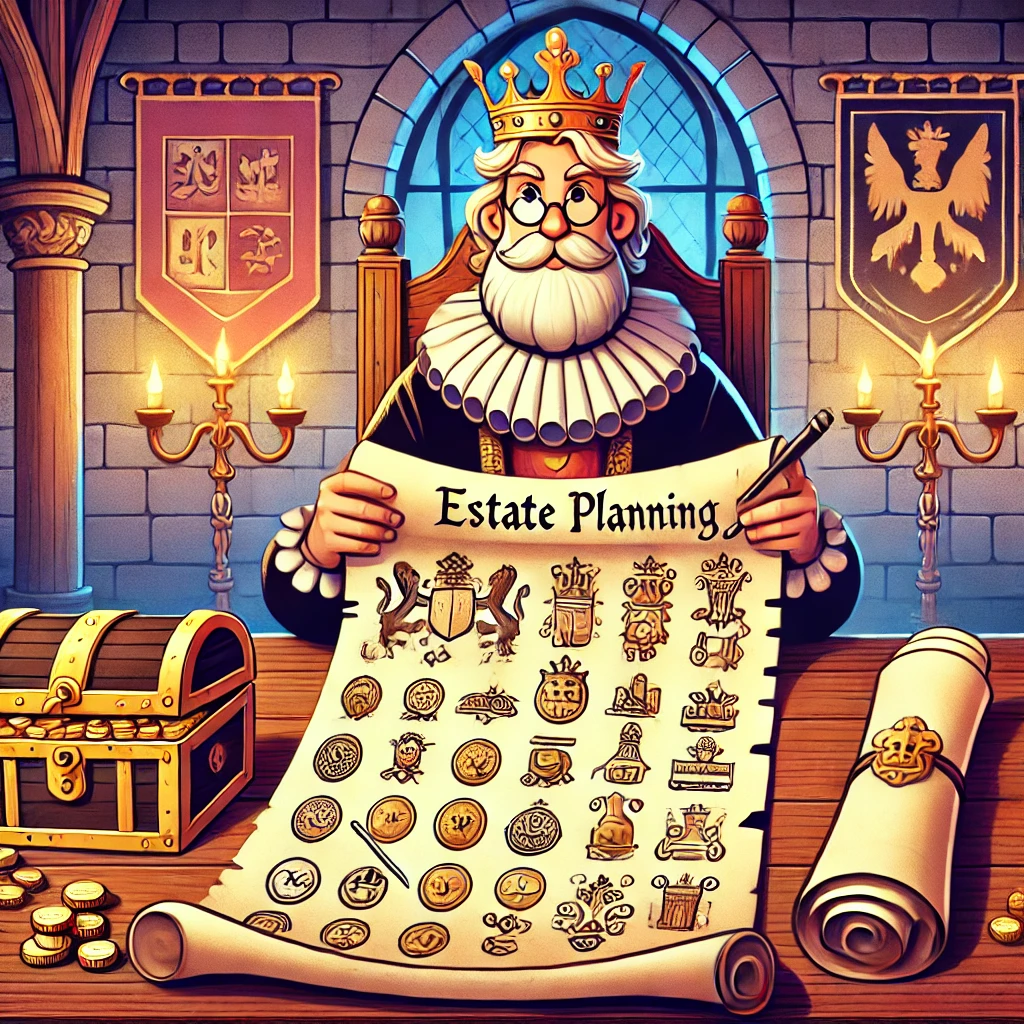Estate planning is a critical step to ensure your assets are protected, your loved ones are cared for, and your wishes are honored. Whether you’re just beginning to think about it or looking to refine an existing plan, this guide will walk you through everything you need to know in 2025.

What is Estate Planning?
Estate planning involves organizing your finances, assets, and legal arrangements to manage your wealth during life and distribute it after death. Key components include wills, trusts, healthcare directives, and powers of attorney.
Why is Estate Planning Important in 2025?
- Avoid Probate: Proper estate planning can help your heirs avoid the lengthy and costly probate process.
- Minimize Taxes: With evolving tax laws, strategic estate planning can reduce the tax burden on your estate.
- Protect Beneficiaries: Ensures your assets are distributed according to your wishes and protects them from disputes.
- Plan for Incapacity: Establish directives for healthcare and financial decisions if you become incapacitated.
- Manage Digital Assets: Include cryptocurrencies, online accounts, and digital files in your plan to ensure accessibility and proper transfer.
Key Components of an Estate Plan
1. Wills and Trusts
- Wills: Legal documents that outline how your assets should be distributed.
- Trusts: Provide more control, avoid probate, and offer potential tax benefits.
2. Power of Attorney
- Assigns someone to manage your financial and legal affairs if you’re unable to do so.
3. Healthcare Directives
- Specify your preferences for medical care if you’re unable to communicate them.
4. Beneficiary Designations
- Ensure retirement accounts, life insurance, and other financial instruments have up-to-date beneficiary information.
5. Digital Assets
- Include online accounts, cryptocurrencies, and digital property to ensure seamless access and transfer.
Steps to Create an Estate Plan
1. Assess Your Assets and Liabilities
- Make a comprehensive list of properties, investments, debts, and personal belongings.
2. Define Your Goals
- Decide how you want your assets distributed and plan for contingencies like incapacity.
3. Consult Professionals
- Work with estate planning attorneys and financial advisors to create a legally sound plan tailored to your needs.
4. Communicate with Family
- Discuss your intentions with loved ones to reduce misunderstandings or conflicts.
5. Regularly Update Your Plan
- Life changes like marriages, divorces, births, or financial shifts necessitate updates.
Common Estate Planning Mistakes to Avoid
- Failing to Plan: Lack of planning can lead to disputes and financial complications for your heirs.
- Neglecting Digital Assets: Ensure all online accounts and digital properties are accounted for.
- Ignoring Tax Implications: Work with professionals to minimize taxes and maximize the legacy you leave behind.
- Outdated Documents: Regularly review and update your plan to reflect current circumstances.
Estate Planning in Modern Family Dynamics
- Blended Families: Ensure fairness in distribution among biological and step-relatives.
- Single Parents: Plan for guardianship and financial security for minors.
- Charitable Giving: Incorporate philanthropic goals for tax benefits and social impact.
Checklist: Creating Your Estate Plan
- List all assets, liabilities, and digital properties.
- Draft a will and consider establishing trusts.
- Assign powers of attorney and healthcare directives.
- Update beneficiary information.
- Consult professionals for legal and financial advice.
- Communicate your plan to family members.
- Review and revise the plan annually or after major life events.
Conclusion
Estate planning is more than just a financial strategy—it’s a way to protect your loved ones and ensure your legacy. Start today by taking small steps toward creating or updating your plan, and consult experts to navigate the complexities. A well-thought-out estate plan is a gift to yourself and your family for years to come.
